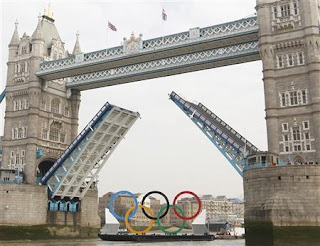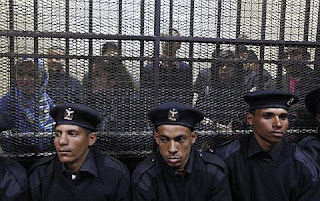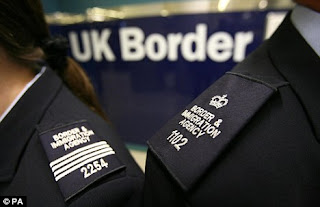Is Obama running scared?
Arguably, the job of convincing Hispanic voters to again deliver for President Obama began with the president's June 2011 trip to Puerto Rico. It was the first such trip for an American president in a half-century.
In 2008, President Obama captured two-thirds of Hispanic votes cast. Two years later in the 2010 midterm elections, research by the Pew Hispanic Center found just 31.2 percent of eligible Hispanics cast ballots, less than either Black voters (44.0 percent) or White voters. (48.6percent). Perhaps more disturbing for the president's team was that the study also found 51 percent of Hispanic voters said President Obama's policies had no effect on them. That deeply troubles many, including Chicago Congressman Luis Gutierrez, D-Ill., an outspoken advocate for comprehensive immigration reform. He was arrested at the white house last year protesting the president’s inertia on immigration. His support he says is in doubt.
Rekindling the excitment
To rekindle excitement among Latinos, the president has appointed two Latinos saenz and Sepulveda to head his Hispanic outreach. He has appointed Shakira, a Columbian, to his Advisory Commission on Educational Excellence for Hispanics. Shakira may have gotten her slot on the educational commission in part because Obama is ramping up his outreach to Hispanics by promoting Hispanic celebrities.
The Hispanic vote is important to the campaign’s success, especially in critical swing-states such as Florida. In May 2011, for example, Obama invited celebrities Eva Longoria and Emilio Estefan to a Cinco de Mayo event at the white house. A week earlier, the white house invited 160 celebrities and elected Latino leaders to the white house for Hispanic Policy Conference. Also in May 2011, the president hired Katherine Archuleta, as political director for the Obama re-election campaign. These moves to ramp up his Latino support leaves little doubt that the president considers their support crucial to his reelection bid. He knows he is not likely to win without it.
Last summer Mr. Obama addressed the largest national Latino civil rights and advocacy organization in America at their Annual Conference luncheon on Monday July 25th in Washington, DC. More than 25,000 participants attended the NCLR's Annual Conference and Latino Family Expo. All this outreach points to one fact, the president wants to keep Latinos in the democratic column.
And President Obama has recently stepped up his efforts to connect with the Hispanic community, granting more interviews and answering Latino voters’ questions. But Latinos are in a foul mood because he failed to deliver on his campaign promise to pass immigration in “my first year in office.” The president faced tough and pointed questions from Latino interviewers last week as he sought to hold on to his Latino support for the upcoming election
All the right moves
The Obama campaign’s latest moves reveal the White House’s realization that, by replicating the strong Latino support of the 2008 election (67% of Latinos voted for Obama then), he may be able to win in states like Arizona, as well as "Colorado, Indiana, Michigan, Nevada, New Mexico and North Carolina” which are reliably republican, even "if he loses key swing states such as Florida, Iowa, New Hampshire, Ohio, Pennsylvania, Virginia and Wisconsin.”
This new campaign tactic highlights the Mr. Obama’s concerns regarding criticism among Hispanic leaders and activists for his failure to bring about comprehensive immigration reform which would have granted legal status and a path towards citizenship to many immigrants. Instead of bringing these concerns to a vote, Obama has focused on ratcheting up deportations and contributing to the drop of estimated undocumented immigrants in the U.S. from 12 million to less than 11 million. These actions have been criticized by most leaders in the Latino community.
The deportation question won't go away
The Obama Administration is responsible for the separation of thousands of families with children who are U.S. citizens. The administration has deported more immigrants--over 1.2 million--than any other President in history. Nearly six-in-ten Latinos, in a 2008 Pew Hispanic Center survey, said they worried that they themselves or a family member, or a close friend may be deported.
When asked whether he believes he still has the support of the Hispanic community Mr. Obama replied, "My presidency is not over; I’ve got another five years and we'll get this done." He then switched to reciting unrelated achievements which he says benefit Latinos: "First of all fixing the economy...we made sure that unemployment insurance got extended... the housing settlement that we just passed... the work we've done on education… and more."
The recent steps the Obama administration has taken, like emphasizing deportations of undocumented criminals and making it easier for some immigrants to apply for residency without having to go back to their countries of origin, are not proof enough that he possesses the spine to stick up for immigration reform.
Obama's deportation policy along with the DREAM Act -- a federal initiative to grant legal status to some young undocumented students and soldiers’ top the list of Latino concerns. Some feel that while the President was scared off by republican big guns waiting to attack him on immigration reform, the hard line deportation policy is of his own making. When asked by a Latino interviewer recently, "What can be done with the alarming and increasing number of children whose parents were detained or deported by ICE, and who are now in foster care or adoption?" Mr. Obama dodged the question saying, "Our focus should be the criminals and predators of our communities, and this is where we have moved our efforts,” Obama replied.
And when pressed as to why he failed to push immigration as he promised during his 2008 campaign he replied: "I would have only broken my promise if I hadn’t tried. But ultimately, I’m one man", "You know, we live in a democracy. We don’t live in a monarchy. I’m not the king."







 4:00 PM
4:00 PM



















